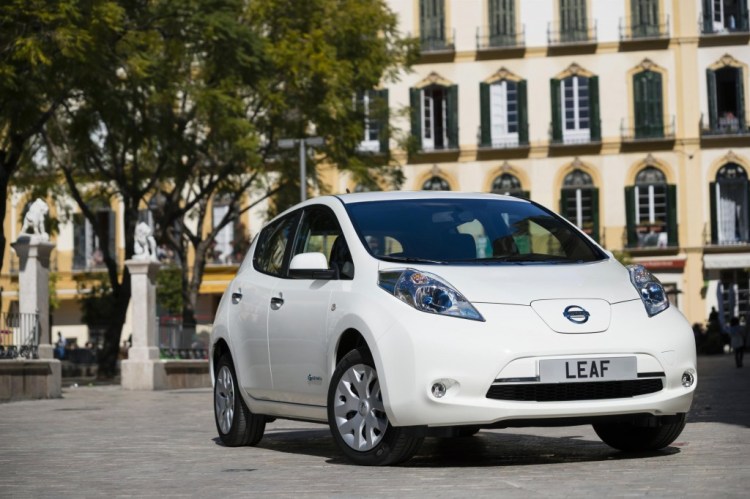Buying a car often isn’t a pleasant experience, and that’s especially true for people looking to purchase an electric car.
Electric-car buyers’ disapproval of the dealership is well documented, as is dealer impatience with the education and added time supposedly required to sell newfangled plug-in cars.
The latest evidence of this buyer-dealer dispute is found in a study conducted by the Institute of Transportation Studies at the University of California, Davis (via Green Car Congress).
Researchers found that buyers of plug-in cars rated dealers much lower in sales satisfaction than buyers of other cars. The one notable exception: Tesla buyers, who learn about the cars in Tesla Stores and then order online — no dealership involved.
Unlike Tesla’s company-owned stores, traditional franchised dealers sell electric cars alongside internal-combustion models, but plug-ins put more demands on salespeople, the study says.
 Dealers interviewed for the study believed that electric cars required more of a salesperson’s time.
Dealers interviewed for the study believed that electric cars required more of a salesperson’s time.
Customers tended to be more discriminating, they said, which demanded more time and effort by the staff to answer questions and arrange test drives.
Another issue surrounds the federal, state, or local incentives for which a buyer might qualify — often an important factor for buyers.
But some incentives can’t be realized until tax time, creating another complication for dealers used to a sale truly having ended when the buyer drives off the lot.
RELATED: Many Car Dealers Don’t Want To Sell Electric Cars: Here’s Why
All this extra time they supposedly had to spend was viewed by dealers as an added cost that ate up time which could otherwise be spent closing more profitable sales of conventional cars — in less time.
But despite these complications, the study actually found that transaction times weren’t any longer for electric cars.
For plug-in car buyers, the average transaction time was 4 hours and 11 minutes, compared to 4 hours and 15 minutes for other buyers.
![Tesla Store Los Angeles [photo: Misha Bruk / MBH Architects] Tesla Store Los Angeles [photo: Misha Bruk / MBH Architects]](http://images.thecarconnection.com/sml/tesla-store-los-angeles-photo-misha-bruk-mbh-architects_100449432_s.jpg) The conflict between profit and the need to promote electric cars was one reason Tesla chose to sell through company-owned stores rather than franchised dealers.
The conflict between profit and the need to promote electric cars was one reason Tesla chose to sell through company-owned stores rather than franchised dealers.
That approach seems successful, considering the positive consumer responses observed by researchers.
The disparity between the experiences of buyers at conventional franchised dealerships and at Tesla’s company-owned stores led researchers to conclude that electric cars may require a different sales approach, at least during the early stages of their adoption.
However, with franchised dealers and their state lobbying arms working hard at changing laws to ban direct sales and ensure dealerships are the sole legal way to buy a car, a systemic change seems unlikely.
The decentralized nature of the car-sales business also works against change: Dealers tend to be independent of each other, with carmakers having limited ability to implement different practices at dealerships to sell more electric cars.
Will the status quo change any time soon? The odds may be against it.
_______________________________________________
Follow GreenCarReports on Facebook, Twitter, and Google+.
This story originally appeared on Green Car Reports. Copyright 2014
VentureBeat's mission is to be a digital town square for technical decision-makers to gain knowledge about transformative enterprise technology and transact. Learn More

